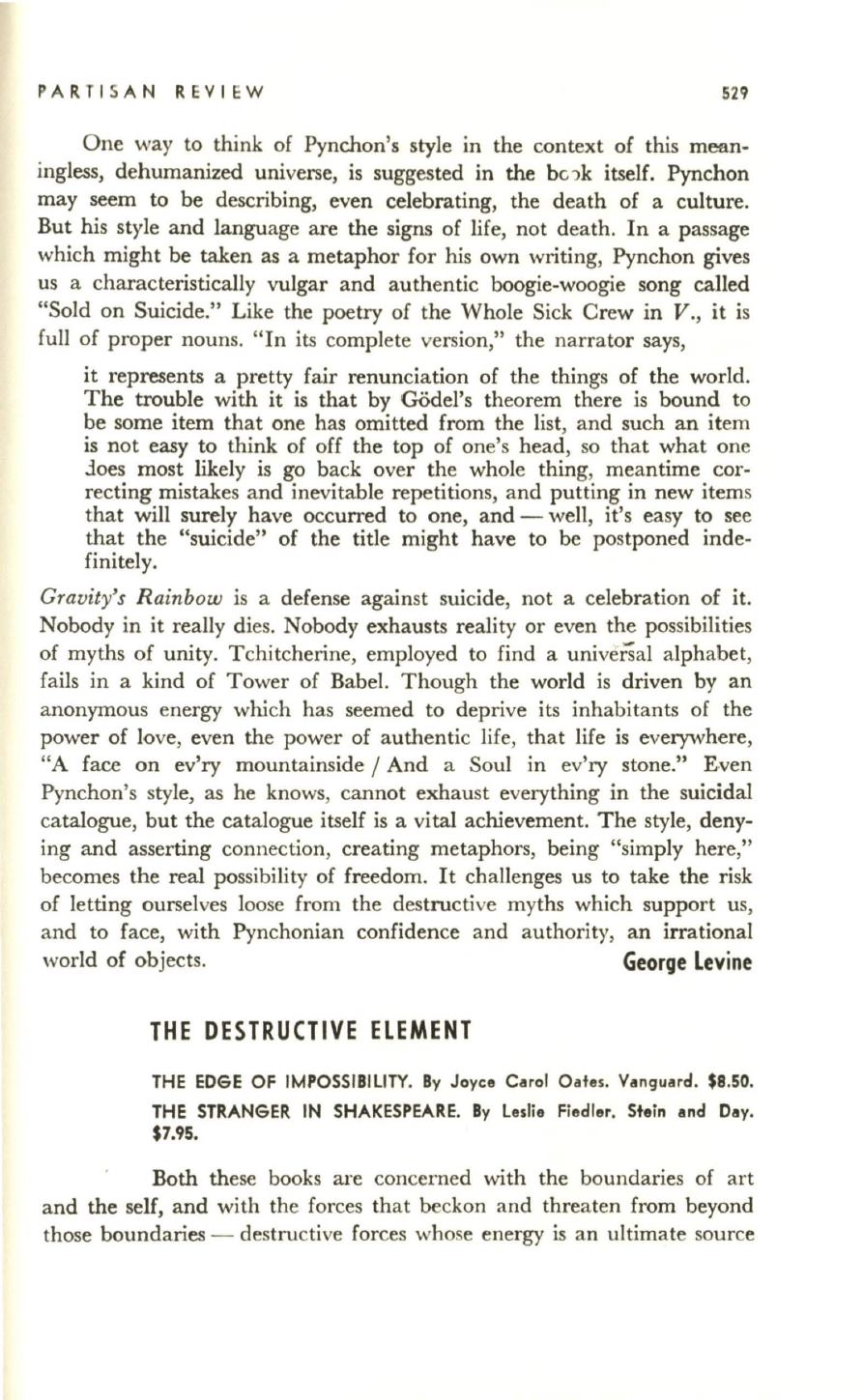
PARTISAN REVIEW
529
One way to think of Pynchon's style in the context of this mean–
ingless, dehumanized universe, is suggested in the bC'Jk itself. Pynchon
may seem to be describing, even celebrating, the death of a culture.
But his style and language are the signs of life, not death. In a passage
which might be taken as a metaphor for his own writing, Pynchon gives
us a characteristically vulgar and authentic boogie-woogie song called
"Sold on Suicide." Like the poetry of the Whole Sick Crew in
V.,
it is
full of proper nouns. "In its complete version," the narrator says,
it represents a pretty fair renunciation of the things of the world.
The trouble with it is that by GOdel's theorem there is bound to
be some item that one has omitted from the list, and such an item
is not easy to think of off the top of one's head, so that what one
joes most likely is go back over the whole thing, meantime cor–
recting mistakes and inevitable repetitions, and putting in new items
that will surely have occurred to one, and - well, it's easy to see
that the "suicide" of the title might have to be postponed inde–
finitely.
Gravity's Rainbow
is a defense against suicide, not a celebration of it.
Nobody in it really dies. Nobody exhausts reality or even the possibilities
of myths of unity. Tchitcherine, employed to find a universal alphabet,
fails in a kind of Tower of Babel. Though the world is driven by an
anonymous energy which has seemed to deprive its inhabitants of the
power of love, even the power of authentic life, that life is everywhere,
"A face on ev'ry mountainside / And a Soul in ev'ry stone." E·ven
Pynchon's style, as he knows, cannot exhaust everything in the suicidal
catalogue, but the catalogue itself is a vital achievement. The style, deny–
ing and asserting connection, creating metaphors, being "simply here,"
becomes the real possibility of freedom. It challenges us to take the risk
of letting ourselves loose from the destructive myths which support us,
and to face, with Pynchonian confidence and authority, an irrational
world of objects.
George Levine
THE DESTRUCTIVE ELEMENT
THE EDGE OF IMPOSSIBILITY. By Joyce Carol Oates. Vanguard.
$8.50.
THE STRANGER IN SHAKESPEARE. By Leslie Fiedler. Stein and Day.
$7.95.
Both these books are concerned with the boundaries of art
and the self, and with the forces that beckon and threaten from beyond
those boundaries - destructive forces whose energy is an ultimate source


